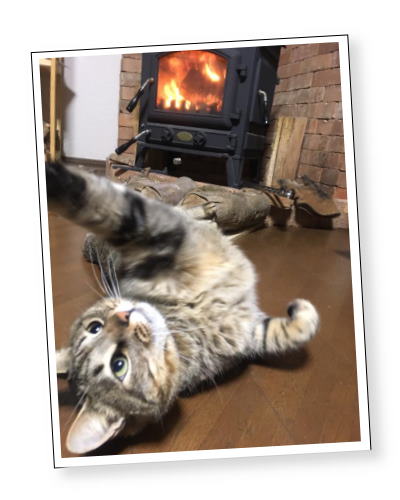How Do I Move Forward After Losing My Pet?
The grief of pet loss can leave us feeling lost, overwhelmed, and unsure about the future.
Some people manage to feel okay for a while—only to find waves of anxiety crashing back down unexpectedly.
This is more common than you might think.
As I listen to stories from people coping with pet loss, I quietly continue knitting memorial gifts—each piece filled with love and remembrance.
Through these heartfelt conversations and my own experiences, I’ve learned a few things. This blog is where I share those insights, hoping they might bring a little comfort to those struggling with similar feelings.
Today, I want to talk about the anxiety many people feel about the future after losing a beloved pet—and how we can gently begin to cope with it.
Feeling Lost After Saying Goodbye
After saying goodbye to a cherished pet, it’s not unusual to feel a deep sense of anxiety about life moving forward.
You may find yourself thinking,
“I don’t know who I am anymore. I don’t know how to live without them.”
Let me assure you: these feelings are completely natural. I’ve felt them too.
And it’s okay to live in that uncertainty for a while. You don’t need to “fix” yourself right away.
How Pet Loss Can Trigger Broader Anxiety
When we go through deep emotional pain, like the grief of losing a pet, it can stir up unrelated fears too.
You might begin to feel anxious around people, struggle with work or school, or lose motivation in areas that once felt routine.
This kind of emotional fallout isn’t unique to pet loss, but the loss often brings it to the surface.
Understanding that these reactions are normal can bring a bit of relief—but of course, that doesn’t make the feelings disappear.
In some cases, people try to force themselves into cheerful distractions or routines, only to feel even more discouraged when it doesn’t help.
I’ve been there too.
Small Steps for Coping With Anxiety After Pet Loss
That’s why I’ve been reflecting on a few gentle ways to respond to that sense of anxiety when it appears.
Not to erase it—but to sit with it kindly, and find small ways to ease the weight.
It’s Okay to Feel Anxious — You Don’t Have to Fix It Right Away
One of the most important things to realize is this:
It’s okay to feel anxious. You don’t need to “fix” that feeling right away.
Whether you’re overwhelmed by grief or trying your best to stay strong, the outside world keeps moving. Nothing around you truly changes just because you’re feeling better—or worse.
We often hear messages like:
- “You need to overcome this!”
- “Just stay positive!”
- “Try to get rid of the anxiety!”
Sometimes these efforts work. But in many cases, they only make things harder—especially when the pressure to “heal” becomes its own kind of stress.
And even if you manage to calm your current anxiety, life has a way of bringing up new worries and emotional stress later on.
Your Pet Used to Be the One Who Eased That Anxiety
Think about this: before, when you felt stressed or overwhelmed, your pet was there.
Just being near them made you feel calmer.
Their presence helped you forget your troubles.
Maybe you even talked to them, and in their own way, they listened.
Did the world around you change in those moments?
Not really.
But having your pet beside you made you feel safe, grounded, and at peace.
So of course you’re feeling anxious now.
It’s only natural when someone who brought you so much comfort is no longer physically here.
That’s why I truly believe—it’s okay to stay just as you are for a while.
You don’t have to rush. You don’t have to “get over it.”
Simply allowing yourself to exist in this moment, with all the sadness and anxiety that comes with it, is a powerful act of self-kindness.
Give Your Feelings a Voice — Put Your Anxiety Into Words
One helpful suggestion I’d like to share is something I’m doing right now:
putting your emotions into words.
Writing down how I feel helps me calm my thoughts.
When I’m anxious about the future, I simply write: “I feel anxious.”
That act alone—taking the worry inside of me and putting it into words—gives me some space.
I can then look at those feelings from the outside, with a little more distance and clarity.
It helps me step back and see things more objectively.
If you’re not used to writing, that’s okay. You can also try talking to someone.
Sharing your thoughts with a trusted friend, family member, or someone who truly understands grief—
even if it doesn’t solve the problem—can lighten the emotional burden.
I believe this works for the same reason writing does:
It helps you see your feelings more clearly, from a different angle.
And if you don’t feel ready to talk to someone?
Even talking out loud to yourself is okay.
Just try to get your thoughts out in some form.
Let your emotions exist outside of you, even for a moment—that’s often the first step toward healing.
Don’t Push Yourself Too Hard
You’ll often hear people recommend exercise as a way to cope with grief.
And while that can be helpful in some cases, I believe it’s not always the right solution—especially when your body or heart feels fragile.
Exercise takes physical energy. It can be draining when you’re already worn out emotionally or mentally.
When you’re in a good place, physical activity might bring a sense of accomplishment or renewal.
But when you’re feeling low, even light exercise can feel exhausting—and when your body is tired, your mind can become more vulnerable too.
That’s why it’s so important not to push yourself too hard.
Related article: Is Exercise Really Helpful for Coping With Pet Loss?
Gentle, Enjoyable Movement Can Help
That said, gentle movement that suits your current energy level can be beneficial—as long as you approach it with care and no pressure.
Rather than thinking of it as “exercise,” think of it as doing something that brings you a little joy or engages your senses.
It might be as simple as taking a slow walk and feeling the sun on your skin, noticing a flower blooming, hearing the birds sing, or tasting something delicious.
These small, sensory moments can create space for emotions like peace, comfort, or even joy to re-enter your life, little by little.
When we welcome even small sparks of pleasure, our mindset naturally begins to shift in a more positive direction.
Writing all this out… I think I’m starting to feel a little better myself.
Get Your Hands in the Dirt
Gardening, yard work—anything that involves touching the earth—I try to do these things whenever I can.
We don’t have a Vegetable Farm of our own, but occasionally I help out at a friend’s farm.
Sometimes I help harvest vegetables or pull weeds.
And after spending time with my hands in the soil, I always feel lighter, more refreshed.
I also clean up the my small garden from time to time.
Pulling weeds, trimming trees, or simply being around plants and nature brings a quiet kind of relief.
Focus on One Task at a Time
Our home is heated with a wood-burning stove, so we keep a pile of firewood in the yard.
Sometimes I spend time chopping wood with an axe or cutting logs.
It’s the kind of task that requires total focus—something you can’t do while distracted or anxious.
That deep concentration has a calming effect, and helps bring my mind back to the present.
I also enjoy cooking and take care of most of the meals in our home.
My wife says my cooking is delicious, and I enjoy the process.
Thinking through recipes and preparing meals gives me a good mental reset.
Even writing all of this out has helped ease some of the anxiety I was feeling.
But I know the unease will probably come back later, after I finish writing and time passes.
And you know what? That’s okay.
Moving forward doesn’t have to happen all at once.
One small step at a time is more than enough.
Cleaning as a Way to Clear the Mind
When I’m feeling anxious, I try to clean the bathroom—especially the toilet.
There’s something about it that makes me feel better.
Of course, it feels good to see things become clean.
But strangely enough, cleaning the toilet gives me a much deeper sense of relief than tidying up any other room.
It’s hard to explain, but it works for me.
Maybe it’s the feeling of starting fresh or restoring order in a small corner of the world.
If you can find something that gives you that same kind of emotional reset—something that makes you feel cleansed inside—I think it can help a lot.
You Don’t Have to Grieve Alone
When it comes to pet loss, many people tend to carry their grief alone.
It can also be hard to know who to talk to, or how to express what you’re feeling.
That’s why so many people come to my shop.
I’m not a counselor, so I can’t offer professional advice.
But I do listen.
And I knit each memorial piece with the hope that, by the time it reaches your hands, you’ll feel just a little bit stronger.
It makes me happy to see people slowly regain their light—even just a little—through the process of sharing their story and receiving a handmade gift in memory of their beloved pet.

I listen to my clients’ concerns and create works that embody their pet’s memories.

